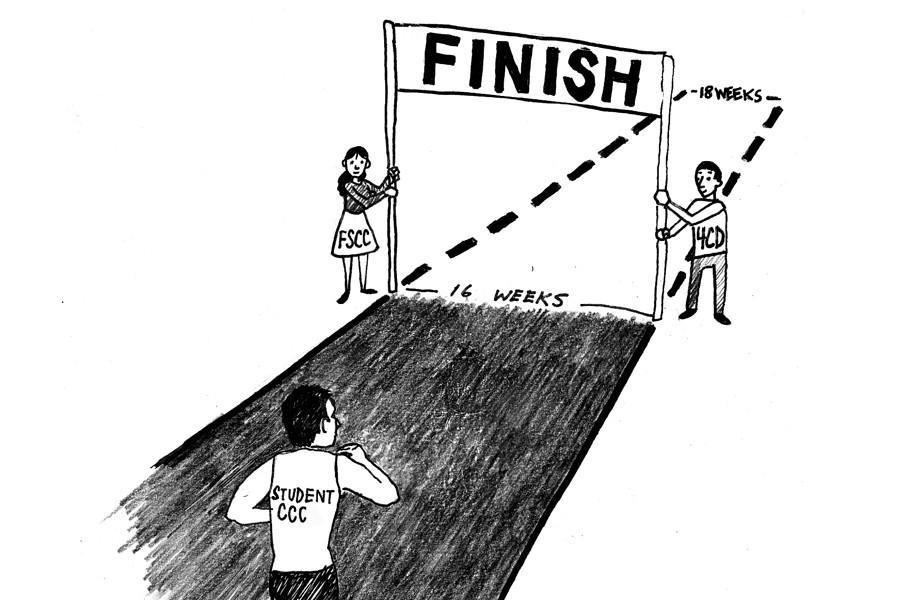A worthwhile endeavor
Apr 7, 2015
The Academic Senate of Contra Costa College chose to address the imminent compressed calendar decision with the utmost consideration for college faculty by electing to democratically survey all faculty positions on the matter before taking a campuswide stance.
Such scrupulousness deserves resounding applause.
After sister school Diablo Valley College’s Faculty Senate President Laurie Lema announced at the March 25 District Governing Board meeting that DVC is endorsing compressing the semester calendar from 18 to 16 weeks, it was discovered that decision did not weigh faculty opinions across the campus, but was instead determined only by the local senate.
CCC’s senate is displaying exemplary levels of fairness and respect by allowing every faculty member the chance to express his or her opinion and then using that data to reach consensus. The online updates, data and discussion provided by the United Faculty, the districtwide faculty union, are a noteworthy complement.
Now, the only way to have provided an immaculate approach from the student perspective would have been to include student opinions, but considering CCC has roughly 6,000 students currently enrolled, that boils down to a quaint ideal.
Though the third school in the district, Los Medanos College, like CCC, has yet to submit its formal position to the district’s Faculty Senate Coordinating Council, it would be wonderful if LMC follows CCC’s example.
The FSCC will come to a districtwide decision sometime in May.
As it requires a year or more of planning, the tentative implementation date of the compressed calendar, if approved, is fall 2016.
Considering that is the same semester marked for the opening of CCC’s new College Center, it seems opportune and advantageous to introduce two things that will ultimately benefit the majority of students and faculty at the same time.
After reviewing what data is available and discussing the matter with individuals districtwide over the course of months, The Advocate has decided to endorse compressing fall and spring semesters by two weeks.
Put simply, the pros outweigh the cons. As CCC Academic Senate President Wayne Organ said, “I can’t find any data that supports that 18 weeks is any better for students than 16 weeks.”
There is published, verifiable data in existence that supports Organ’s claim — data that also suggests the district stands to increase enrollment, profits and completion and retention rates. Much of this information can be found online at uf4cd.org.
Shorter semesters would also allow for longer breaks and the possible addition of a winter intersession, helping students gain units and graduate faster.
We cannot be reluctant to change; it is the only certainty on the forecast. But if research is any indication, the district has a bright future if it chooses to compress the calendar.


